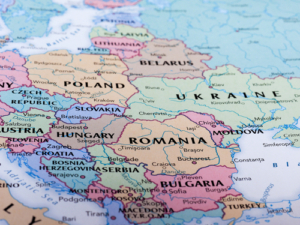Title: The Geopolitical Tensions: Hungary, Ukraine, and the Energy Crisis
Introduction
In a dramatic turn of events in European geopolitics, Ukraine has taken a bold step by attacking the Russian pipeline that supplies energy to Hungary and Slovakia. This incident has not only strained the already precarious relationships in the region but has also reignited historical conflicts that many believed were long settled. At Extreme Investor Network, we understand that these developments are not merely headline news—they represent significant economic and political implications that investors, policy makers, and anyone following global affairs should grasp.
Hungary’s Strong Stance
In a poignant response, Hungarian Foreign Minister Péter Szijjártó condemned Ukraine’s actions as an assault on Hungary’s sovereignty. “We urge the Ukrainians not to attack energy infrastructure that supplies Hungary,” he stated, marking a serious turning point in Hungary’s stance towards the ongoing conflict. Such declarations signal that Hungary views this aggression not just as a military maneuver, but as a direct threat to its national integrity. This could have significant repercussions, both politically and economically.
Historical Context: The EU’s Role
The former French president, alongside Germany’s Chancellor, depicted the European Union’s aim as one of unity to eliminate war, a noble aspiration. However, the complex history of Europe can’t be overlooked. Nearly 85% of recorded battles throughout history have taken place on the continent, rooted in deep-seated cultural, linguistic, and religious differences. Unfortunately, the EU’s ambitions sometimes overlook these profound disparities.
Hungary’s resistance against Islamic migration has become a flashpoint in this ongoing struggle for dominance within the EU. There’s a growing sentiment that the EU’s dictatorial cultural decrees clash with Hungary’s sovereignty, a notion that might provoke further tension rather than resolve it.
Revisiting Historical Conflicts
The ramifications of recent events harken back to significant historical moments such as the 1683 Siege of Vienna. This monumental battle marked the decline of the Ottoman Empire’s incursions into Europe and is a reminder of the cultural clashes that have shaped the continent. By compelling member states to accept a surge of Islamic migrants, the EU risks igniting the old animosities that have simmered beneath the surface for centuries. These dynamics could alter how Europe approaches both foreign and domestic policy in the coming years.
The Economic Perspective
The economic implications of Ukraine’s attack are profound. As energy supplies become increasingly volatile, countries reliant on stability—like Hungary—face dire challenges. The potential for energy shortages could lead to a domino effect across Europe, impacting everything from market confidence to investment stability. For the astute investor, this is not merely an issue of regional conflict but a pivotal moment to assess market risks and opportunities arising from these geopolitical tensions.
Conclusion
As the landscape of European politics continues to shift, understanding the interconnectedness of these events is critical. Here at Extreme Investor Network, we aim to provide you with in-depth analysis and insights that go beyond the surface. We believe that informed preparation is the key to navigating an increasingly complex global environment, transformed by the actions of nations and the decisions of leaders. Stay connected with us for continuous updates and expert perspectives on how these events will unfold and influence the markets.

